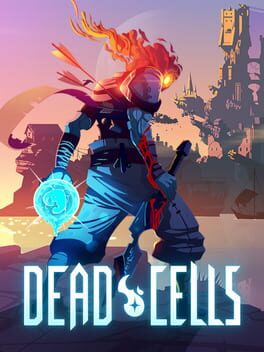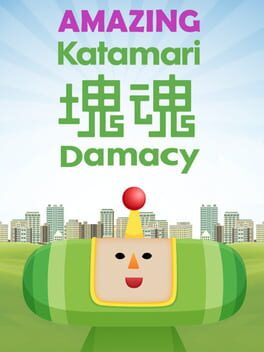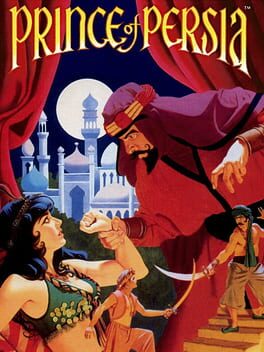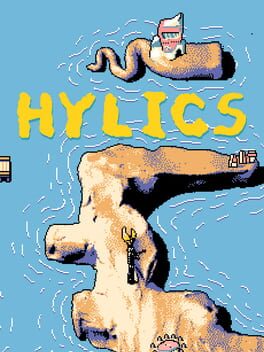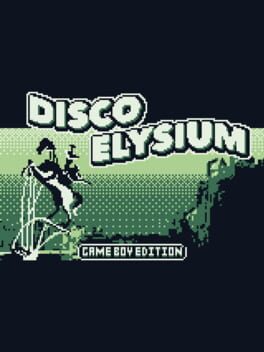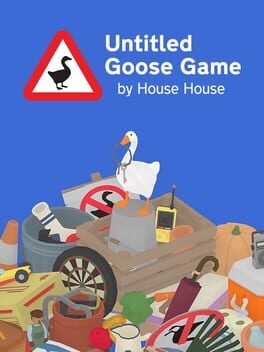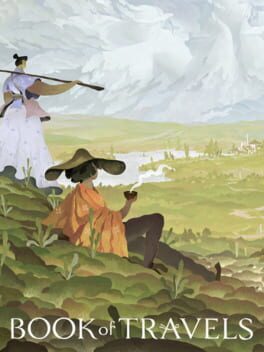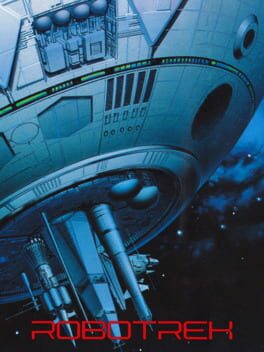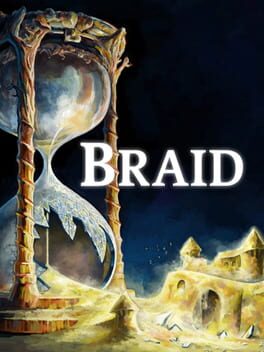1999
Critics: "This game is a masterpiece. A master class in non-linear storytelling. A deep, moving, intelligent exploration of memory and identity. One of the best examples in the medium's history of game-as-art and game-as-literature."
[boots up game]
Floating Skull With Thick New York Accent: "What's crackin', chief? You dead or sumthin'? Let's skedattle outta here before those mummies get a whiff of us, or our ass is grass if ya know whadd I mean!"
[boots up game]
Floating Skull With Thick New York Accent: "What's crackin', chief? You dead or sumthin'? Let's skedattle outta here before those mummies get a whiff of us, or our ass is grass if ya know whadd I mean!"
2017
The most obnoxious part of this (moreso even than the incessant snark) is the way it is constantly referencing other, better games. It seems to have no identity of its own. You don't even have a face.
In Tevis Thompson's review of this game he criticizes it as part of a general trend of fetishizing gamefeel. I find the critique compelling in the abstract—("That luscious feedback, that perfect extension of your will, that zone you wish to stay in forever. Gross.")—but applied to this?? Really?? The "gamefeel" of Dead Cells is dog shit.
And this is immediately apparent the moment you get a hold of the nail from Hollow Knight, or the light gun & sword from Hyper Light Drifter. Stripped of the context of a larger game world which gives these tools meaning, they appear as lifeless signifiers, wholly out of place. What's the point of a weapon that pogos when there's hardly anything in the environment to pogo off of? What's the point of forcing the player to alternate between slashing and shooting in this very particular rhythm when there's nothing about the enemy distribution or the way their health is allotted that compliments that rhythm? But even more than this: using them just feels bad. Clunky. Awkward. Not fun.
I think I'm going to avoid roguelikes for a while after this one. There's something inherently cynical and depressing about so many of them. Empty. The gaming equivalent of social media's endless scroll. Joyless compulsion. Doom playing. No thank you. I prefer not to.
In Tevis Thompson's review of this game he criticizes it as part of a general trend of fetishizing gamefeel. I find the critique compelling in the abstract—("That luscious feedback, that perfect extension of your will, that zone you wish to stay in forever. Gross.")—but applied to this?? Really?? The "gamefeel" of Dead Cells is dog shit.
And this is immediately apparent the moment you get a hold of the nail from Hollow Knight, or the light gun & sword from Hyper Light Drifter. Stripped of the context of a larger game world which gives these tools meaning, they appear as lifeless signifiers, wholly out of place. What's the point of a weapon that pogos when there's hardly anything in the environment to pogo off of? What's the point of forcing the player to alternate between slashing and shooting in this very particular rhythm when there's nothing about the enemy distribution or the way their health is allotted that compliments that rhythm? But even more than this: using them just feels bad. Clunky. Awkward. Not fun.
I think I'm going to avoid roguelikes for a while after this one. There's something inherently cynical and depressing about so many of them. Empty. The gaming equivalent of social media's endless scroll. Joyless compulsion. Doom playing. No thank you. I prefer not to.
Transcript of a text conversation with my gf...
April 4, 2019, 12:04 AM
>> Decided to try playing Katamari “against the grain” (as [Walter] Benjamin would say) and aim to get as many coins as possible while getting as few points as possible
>>Check out these C H O N K cousin balls...
https://imgur.com/a/jPXKrvM
>> Apparently the game isn’t as linear as I thought - if you don’t get big enough, each little area turns into a loop and it won’t let you leave until you get big enough to be able to pick up the smallest objects in the next area
>> But the “cousins” are way oversized visually compared to how much actual growth they give you in terms of game mechanics, so they just pile up until they fill the whole screen - hence the chonky boys above
>> It makes it harder to see what you’re doing, so it gets easier to “mess up” and pick up actual objects (giving you points) - but even though they take up graphical space, only the actual Katamari ball counts in terms of game mechanics - if the cousins stuck to your ball touch things, they just pass right through them - and eventually if you’re able to pick up enough cousins you’re able to advance to the next “scale” or whatever without picking up any actual points-granting objects
>> It would be really really hard and probably take hours, but theoretically at least I think it would be possible to reach the rainbow bridge stage while getting zero points
>>> Hahahaha holy shit
>>> You’ve ascended
>>> to True contrarian Gamer levels
>>> I support this
>> Anyway I’m thinking I should drop out of school, practice this all day until I’m skilled enough to achieve this, and then make a 10 hour long play through video and become YouTube famous
April 4, 2019, 12:04 AM
>> Decided to try playing Katamari “against the grain” (as [Walter] Benjamin would say) and aim to get as many coins as possible while getting as few points as possible
>>Check out these C H O N K cousin balls...
https://imgur.com/a/jPXKrvM
>> Apparently the game isn’t as linear as I thought - if you don’t get big enough, each little area turns into a loop and it won’t let you leave until you get big enough to be able to pick up the smallest objects in the next area
>> But the “cousins” are way oversized visually compared to how much actual growth they give you in terms of game mechanics, so they just pile up until they fill the whole screen - hence the chonky boys above
>> It makes it harder to see what you’re doing, so it gets easier to “mess up” and pick up actual objects (giving you points) - but even though they take up graphical space, only the actual Katamari ball counts in terms of game mechanics - if the cousins stuck to your ball touch things, they just pass right through them - and eventually if you’re able to pick up enough cousins you’re able to advance to the next “scale” or whatever without picking up any actual points-granting objects
>> It would be really really hard and probably take hours, but theoretically at least I think it would be possible to reach the rainbow bridge stage while getting zero points
>>> Hahahaha holy shit
>>> You’ve ascended
>>> to True contrarian Gamer levels
>>> I support this
>> Anyway I’m thinking I should drop out of school, practice this all day until I’m skilled enough to achieve this, and then make a 10 hour long play through video and become YouTube famous
1989
Gorgeous. Addictive. Infuriatingly difficult.
Note: I honestly don't know why anyone would prefer any of the other versions to the original Apple II one or to the initial DOS / Amiga ports (which polishes up the original while maintaining the simplicity and flatness). People talk about the SNES version having "better" graphics. Yeah, I guess if you like a bunch of pointless detail being added that makes it look like lots of other platformers from the era. The beauty of the original game is its striking minimalism (which, incidentally, helps the smoothness of the rotoscoping shine).
Note: I honestly don't know why anyone would prefer any of the other versions to the original Apple II one or to the initial DOS / Amiga ports (which polishes up the original while maintaining the simplicity and flatness). People talk about the SNES version having "better" graphics. Yeah, I guess if you like a bunch of pointless detail being added that makes it look like lots of other platformers from the era. The beauty of the original game is its striking minimalism (which, incidentally, helps the smoothness of the rotoscoping shine).
2015
It's less polished and less fleshed out than Hylics 2, yes. But for how much I'd heard this described as a quirky little oddity or throwaway prankster experiment in comparison to its sequel, I was surprised at just how rich and enjoyable a gaming experience it wound up being.
It does, however, lean much further into being a parody of the JRPG genre (while at the same time toying with the genre's mechanics in genuinely interesting and creative ways). Lindroth seems to take a sort of impish, anarchic glee in "breaking" the genre's fundamental systems or rendering them pointless and absurd.
Near the end of the game, for instance, you walk into a room, open some chests, and are suddenly given what for all intents and purposes amounts to an infinite amount of money — a completely random, unearned, hilariously disproportionate "reward" for doing basically nothing at all. The game's biggest laugh-out-loud moment for me occurs when you defeat the final boss, upon which you're again given "999999 BUCKS" (which you now have no reason to spend), as well as "A HOT DOG," and are informed that you've gained "999999 EXP" and that all of your party members have now reached "LEVEL 63." Neither experience nor levels have been mentioned at all in the game prior to this moment.
The implicit message seems to be: none of this matters! You didn't play this game because you want to crunch numbers¹ or to fight repetitive battles until your avatar is as souped up and powerful as possible. You played it so that you could have the experience of being a weird little yellow guy with a moon for a head, wandering around a dithered 8-bit clay world, squashing vegetables, petting cats, watching trippy animations, and listening to NPCs with goofy walk cycles recite gobbledygook flavor text. And on that front? Hylics delivers.
I can't wait for Hylics 3.
¹For an example of weird JRPG parody that goes the opposite direction and leans waaaaay into the number crunching, check out the games of Damien Crawford!
It does, however, lean much further into being a parody of the JRPG genre (while at the same time toying with the genre's mechanics in genuinely interesting and creative ways). Lindroth seems to take a sort of impish, anarchic glee in "breaking" the genre's fundamental systems or rendering them pointless and absurd.
Near the end of the game, for instance, you walk into a room, open some chests, and are suddenly given what for all intents and purposes amounts to an infinite amount of money — a completely random, unearned, hilariously disproportionate "reward" for doing basically nothing at all. The game's biggest laugh-out-loud moment for me occurs when you defeat the final boss, upon which you're again given "999999 BUCKS" (which you now have no reason to spend), as well as "A HOT DOG," and are informed that you've gained "999999 EXP" and that all of your party members have now reached "LEVEL 63." Neither experience nor levels have been mentioned at all in the game prior to this moment.
The implicit message seems to be: none of this matters! You didn't play this game because you want to crunch numbers¹ or to fight repetitive battles until your avatar is as souped up and powerful as possible. You played it so that you could have the experience of being a weird little yellow guy with a moon for a head, wandering around a dithered 8-bit clay world, squashing vegetables, petting cats, watching trippy animations, and listening to NPCs with goofy walk cycles recite gobbledygook flavor text. And on that front? Hylics delivers.
I can't wait for Hylics 3.
¹For an example of weird JRPG parody that goes the opposite direction and leans waaaaay into the number crunching, check out the games of Damien Crawford!
2018
Feels a bit like the ultimate apotheosis of the modern roguelike: after over a decade of refinement within the genre, the balance between randomness & strategy, repetition & meta-progression, have finally been perfectly calibrated to their optimum state. This is the game's greatest strength. But it may also be its greatest weakness. Despite coming back to it day after day, I can't help but feel there's something... empty about Hades. Once you finally defeat your dad and breach the underworld for the first time, unlocking an array of self-imposed handicaps for ever-greater rewards, the Skinnerbox skeleton really begins to peek through more and more.
I'm still in the throws of my addiction to this game, so I imagine I'll be playing it a while longer. But the magic has already started to fade.
(Minus half a star for the insufferable Whedon-esque quips, and for paying homage to Morte of Planescape: Torment infamy, the bane of my existence.)
I'm still in the throws of my addiction to this game, so I imagine I'll be playing it a while longer. But the magic has already started to fade.
(Minus half a star for the insufferable Whedon-esque quips, and for paying homage to Morte of Planescape: Torment infamy, the bane of my existence.)
Unsurprisingly for such a sprawling game, this demake recreates only one tiny, stripped down portion of the whole. It's more a demo or proof of concept, really. You can play through basically everything there is to do in about 10 minutes. But what's there is really impressive. The way that certain complex aspects of the game's mechanics—from the dice rolls to the thought cabinet—were adapted and simplified was often very creative. And the chiptune renditions of the soundtrack were charming as hell. I wish they'd left in Cuno, but oh well.
2019
Charming. Short.
I guess I was expecting this to be more of a sandbox game and less of an explicit puzzler. There's benefits and drawbacks to both approaches. The sandbox approach would risk boredom, and without being given any direction I imagine it might become frustrating not knowing how many reactions or outcomes one is missing out on by not having discovered the proper triggers for them. Conversely, the puzzle solving approach encourages and allows for more complexity in setting up elaborate, multi-step pranks that an individual player would likely never stumble upon without at least some guidance; but it also imposes a certain amount of linearity, and dampens somewhat the joys of pure discovery and anarchic-ness.
I was immediately disappointed when the checklist first made it's appearance at the start. (A meddlesome goose with a to-do list?? The scourge of productivity strikes again!) Realistically there was probably no other way to make this work, and any alternative would have likely ended up less fun. To their credit, they also do a good job trying to encourage more aimless experimentation by way of the "To Do (As Well)" secret checklist, whose items are only revealed after they've already been accomplished (or once the main game is beaten).
I also try to remind myself of a phrase my old professor, the filmmaker Thom Andersen, liked to repeat: "suspense is an alienation effect." In other words: by prolonging narrative closure, raising a question and then leaving it unresolved for a certain period of time, you create a space of heightened attention for the viewer, and this attention can be re-directed however the director sees fit. (Andersen's favorite example of this was a scene in the 1973 political thriller The Day of the Jackal where otherwise mundane Parisian street scenes become strangely riveting by virtue of our knowledge that Charles de Gaulle's would-be assassin is hiding somewhere among them.)
There is a case to be made that an analogous principle exists in game design: goals are an alienation effect. The gap between assignment and execution opens up its own space of unresolved tension, heightening our perception, and—in a feature that distinguishes games from a medium like film—directing or guiding our behavior. The experience of the game, in other words, is what happens while we're busy trying to accomplish other plans.
Still, there's part of me that laments the narrow way that goal-oriented engagement hews and anchors our attention. How much of the game's world is blinkered out as I fixate on solving the problems it presents me with? How much is lost when I perceive that world as purely means to various ends? How does the pleasure of an action done for its own sake compare to the satisfaction of an action within a chain leading to an end result already known in advance? (Even the attempt to uncover a "hidden" objective creates a wholly different, and arguably impoverished, way of looking from that of open-ended playfulness.)
I'm reminded too that Thom Andersen, in addition to his love for classical narrative cinema, is one of the most notable critical champions of the filmic work of Andy Warhol. Perhaps that's what I wanted out of this. A more Warholian experience. Not the heightened mundanity transformed by the alienation effect of suspense/objectives, but mundanity itself, raw. A slab of time to live in. An array of objects and effects and patterns to fuck around with.
But I suppose at that point what I'm asking for isn't really a game at all. So I can't say I was misled. After all, it's right there in the title.
I guess I was expecting this to be more of a sandbox game and less of an explicit puzzler. There's benefits and drawbacks to both approaches. The sandbox approach would risk boredom, and without being given any direction I imagine it might become frustrating not knowing how many reactions or outcomes one is missing out on by not having discovered the proper triggers for them. Conversely, the puzzle solving approach encourages and allows for more complexity in setting up elaborate, multi-step pranks that an individual player would likely never stumble upon without at least some guidance; but it also imposes a certain amount of linearity, and dampens somewhat the joys of pure discovery and anarchic-ness.
I was immediately disappointed when the checklist first made it's appearance at the start. (A meddlesome goose with a to-do list?? The scourge of productivity strikes again!) Realistically there was probably no other way to make this work, and any alternative would have likely ended up less fun. To their credit, they also do a good job trying to encourage more aimless experimentation by way of the "To Do (As Well)" secret checklist, whose items are only revealed after they've already been accomplished (or once the main game is beaten).
I also try to remind myself of a phrase my old professor, the filmmaker Thom Andersen, liked to repeat: "suspense is an alienation effect." In other words: by prolonging narrative closure, raising a question and then leaving it unresolved for a certain period of time, you create a space of heightened attention for the viewer, and this attention can be re-directed however the director sees fit. (Andersen's favorite example of this was a scene in the 1973 political thriller The Day of the Jackal where otherwise mundane Parisian street scenes become strangely riveting by virtue of our knowledge that Charles de Gaulle's would-be assassin is hiding somewhere among them.)
There is a case to be made that an analogous principle exists in game design: goals are an alienation effect. The gap between assignment and execution opens up its own space of unresolved tension, heightening our perception, and—in a feature that distinguishes games from a medium like film—directing or guiding our behavior. The experience of the game, in other words, is what happens while we're busy trying to accomplish other plans.
Still, there's part of me that laments the narrow way that goal-oriented engagement hews and anchors our attention. How much of the game's world is blinkered out as I fixate on solving the problems it presents me with? How much is lost when I perceive that world as purely means to various ends? How does the pleasure of an action done for its own sake compare to the satisfaction of an action within a chain leading to an end result already known in advance? (Even the attempt to uncover a "hidden" objective creates a wholly different, and arguably impoverished, way of looking from that of open-ended playfulness.)
I'm reminded too that Thom Andersen, in addition to his love for classical narrative cinema, is one of the most notable critical champions of the filmic work of Andy Warhol. Perhaps that's what I wanted out of this. A more Warholian experience. Not the heightened mundanity transformed by the alienation effect of suspense/objectives, but mundanity itself, raw. A slab of time to live in. An array of objects and effects and patterns to fuck around with.
But I suppose at that point what I'm asking for isn't really a game at all. So I can't say I was misled. After all, it's right there in the title.
2021
I am not sure whether it's ever truly possible for a video game—at least not one with goals to achieve, metrics to manage, and items to hoard—to transcend the inevitable compulsion toward completionism, to halt the ever-present pull toward efficiency maximization, and to re-direct the player's energies toward less narrow-minded, less mastery-focused, less algorthm-aligned, more expansive, more observant, more convivial, more vibes-based ends... but damn if this one doesn't make a valiant effort.
1994
An RPG about the benefits of reading books. (Oh and I guess you build some robots too.)
The insanely convoluted story that gleefully mashes up genres and tones is a wild ride. You start out the son of a humble small town inventor, rescuing some kids who got stuck in a cave (after the petulant Elon Musk-esque scientist fails to do it), and before you know it there's hacker gangs and a crab-man and a doppelganger mayor having an affair with his secretary and a haunted mansion and a vengeful volcano god (who's not really a vengeful volcano god) and a pumpkin-head-man and brainwashing and aliens and more aliens and time travel and space travel and now you have doppelgangers and the whole time you're being trailed by a small-time reporter named Mint who's always trying to "get the scoop." It absolutely does not make anything clearer that the translation is garbage. But it's kind of all part of the charm.
I will say I don't know how anyone could have ever completed this back in the day without a guide. The item crafting system is way ahead of its time (ditto the battle system, which predates Pokémon by a few years), but it's also pretty damn complicated, with a lot of tedious trial and error if you don't know in advance what you're doing.
The insanely convoluted story that gleefully mashes up genres and tones is a wild ride. You start out the son of a humble small town inventor, rescuing some kids who got stuck in a cave (after the petulant Elon Musk-esque scientist fails to do it), and before you know it there's hacker gangs and a crab-man and a doppelganger mayor having an affair with his secretary and a haunted mansion and a vengeful volcano god (who's not really a vengeful volcano god) and a pumpkin-head-man and brainwashing and aliens and more aliens and time travel and space travel and now you have doppelgangers and the whole time you're being trailed by a small-time reporter named Mint who's always trying to "get the scoop." It absolutely does not make anything clearer that the translation is garbage. But it's kind of all part of the charm.
I will say I don't know how anyone could have ever completed this back in the day without a guide. The item crafting system is way ahead of its time (ditto the battle system, which predates Pokémon by a few years), but it's also pretty damn complicated, with a lot of tedious trial and error if you don't know in advance what you're doing.
1992
I haven't even played this yet but I downloaded the fan translation ROM patch and this is in the ReadMe file:
"Noobow as it turns out is a Japanese mascot for chocolate if I'm remembering it correctly. As such it's entirely geared towards children and is perhaps only noteworthy for its cute graphic design. The game is an extremely simple platformer with the most basic of puzzles that aren't hard to figure out. There's really no reason an adult should be playing this game unless they have the mind of a child or are interested in the history of video games. I recommend that if anyone reading this has children, they should have their children play the game instead."
LMAO DRAG ME! 😭
"Noobow as it turns out is a Japanese mascot for chocolate if I'm remembering it correctly. As such it's entirely geared towards children and is perhaps only noteworthy for its cute graphic design. The game is an extremely simple platformer with the most basic of puzzles that aren't hard to figure out. There's really no reason an adult should be playing this game unless they have the mind of a child or are interested in the history of video games. I recommend that if anyone reading this has children, they should have their children play the game instead."
LMAO DRAG ME! 😭
The fact that this game recreates the Guantanamo Bay detention camp, but then makes it canonically run not by the US government, but by the paramilitary force of a shadowy Illuminati-esque global cabal headed by a supervillain with a literal skull for a face, which the US military then bombs because it would presumably be an international scandal if word of a black site being run on US-controlled soil ever got out, tells you kind of everything you need to know about Kojima's approach to politics.
2008
2019
Probably the best apocalyptic psychedelic existential communist hardboiled detective CRPG to ever come out of Estonia.
Really though... I always hesitate to use the word "masterpiece" to describe any work of art or piece of media, because it kind of puts things into this rarified category that simultaneously makes them feel stuffy and unappealing and sets expectations too high, making disappointment inevitable. This isn't a perfect game by any means. But it's an incredibly engrossing, well written, and innovative one. It's vast in scope (despite being confined to a very small geographic area), with richly fleshed out worldbuilding. It's also possibly the most intelligent game I've ever played – and not in a clever, purely conceptual "art game" sort of way. I usually find the gaming world to have an extremely low bar for what it considers "literary," but in this case I really did finish the game feeling like I'd just read a really good novel.
The central draw is the game's immersive dialogue tree system, which gives a feeling of open-endedness and non-linearity and which radically emphasizes player choice in a way comparable only to pen and paper RPGs. The truly innovative aspect of the game is the way in which its character stats are not merely attributes, but fragments of the character's psyche, leading to a chorus of voices that advises you (sometimes poorly, sometimes in contradiction to one another) through every conversation and decision. I really hope more games copy this mechanic.
I did have a few gripes:
1. The worldbuilding information dumping was occasionally a little excessive. I realize this may have been partly a result of putting lots of points in the Encyclopedia stat, but I would find myself sometimes quickly paging through long descriptions of things. The Shivers attribute, in particular, while sometimes providing some evocative atmosphere, more often than not left me wondering why the hell I'm reading three paragraphs about the texture of oil and rainwater forming puddles in the pavement or some random old man smoking a cigarette on a neighboring island or whatever.
2. Having character stats be tied so closely to clothing is a fun idea, but it wound up making things more tedious than they needed to be, as I found myself constantly backing out of dice rolls to change my outfit. I also spent most of the game running around with no pants on, since the only pairs of pants I ever found had debuffs I didn't want and buffs I didn't need. The gag of having to find most of your clothes in the literal trash, and then combine them in all sorts of absurd ways to suit your build, makes for an amusing spectacle, but one that sometimes undercut the emotional gravitas of certain scenes (delivering the news to someone that their husband has died while naked from the waist down and wearing an Asian conical hat, a hideous necktie, and the equivalent of a Conan the Barbarian t-shirt, for instance).
3. I mentioned before how one of the most appealing aspects of the game is the sense of player freedom and non-linearity it evokes. Unfortunately this was frequently undercut by dialogue branches staying open after they'd ceased to be relevant (prompting me to ask questions I already knew the answers to, without acknowledging that this was well established information), or when they directly contradicted other branches I'd already selected. For instance, while there were one or two times where me being aggressive toward someone led to them not being willing to talk to me anymore, there were many more times where I could go through the same conversation multiple times in a row, taking a different tact each time. Sometimes you'd get a prompt telling you someone was getting impatient with your questions, but then go on to exhaust every single conversation path with them over the next 20 minutes with no consequence. The game would have been so much more immersive, and my decisions as a player felt so much more real and consequential, and make each playthrough feel wholly unique, if I was left wondering "would this conversation have played out differently had I said something different there?" for basically every dialogue choice.
4. The ending felt a bit abrupt. Not narratively. But just cutting straight from an ordinary dialogue window to the credits. Finishing with a few still images and some voiceover would have done a lot.
None of the above were consequential enough for me to consider this anything less than a 5 star game though. If story-based, atmospheric, or dialog-heavy RPGs are at all your kind of thing, this is absolutely worth playing.
Really though... I always hesitate to use the word "masterpiece" to describe any work of art or piece of media, because it kind of puts things into this rarified category that simultaneously makes them feel stuffy and unappealing and sets expectations too high, making disappointment inevitable. This isn't a perfect game by any means. But it's an incredibly engrossing, well written, and innovative one. It's vast in scope (despite being confined to a very small geographic area), with richly fleshed out worldbuilding. It's also possibly the most intelligent game I've ever played – and not in a clever, purely conceptual "art game" sort of way. I usually find the gaming world to have an extremely low bar for what it considers "literary," but in this case I really did finish the game feeling like I'd just read a really good novel.
The central draw is the game's immersive dialogue tree system, which gives a feeling of open-endedness and non-linearity and which radically emphasizes player choice in a way comparable only to pen and paper RPGs. The truly innovative aspect of the game is the way in which its character stats are not merely attributes, but fragments of the character's psyche, leading to a chorus of voices that advises you (sometimes poorly, sometimes in contradiction to one another) through every conversation and decision. I really hope more games copy this mechanic.
I did have a few gripes:
1. The worldbuilding information dumping was occasionally a little excessive. I realize this may have been partly a result of putting lots of points in the Encyclopedia stat, but I would find myself sometimes quickly paging through long descriptions of things. The Shivers attribute, in particular, while sometimes providing some evocative atmosphere, more often than not left me wondering why the hell I'm reading three paragraphs about the texture of oil and rainwater forming puddles in the pavement or some random old man smoking a cigarette on a neighboring island or whatever.
2. Having character stats be tied so closely to clothing is a fun idea, but it wound up making things more tedious than they needed to be, as I found myself constantly backing out of dice rolls to change my outfit. I also spent most of the game running around with no pants on, since the only pairs of pants I ever found had debuffs I didn't want and buffs I didn't need. The gag of having to find most of your clothes in the literal trash, and then combine them in all sorts of absurd ways to suit your build, makes for an amusing spectacle, but one that sometimes undercut the emotional gravitas of certain scenes (delivering the news to someone that their husband has died while naked from the waist down and wearing an Asian conical hat, a hideous necktie, and the equivalent of a Conan the Barbarian t-shirt, for instance).
3. I mentioned before how one of the most appealing aspects of the game is the sense of player freedom and non-linearity it evokes. Unfortunately this was frequently undercut by dialogue branches staying open after they'd ceased to be relevant (prompting me to ask questions I already knew the answers to, without acknowledging that this was well established information), or when they directly contradicted other branches I'd already selected. For instance, while there were one or two times where me being aggressive toward someone led to them not being willing to talk to me anymore, there were many more times where I could go through the same conversation multiple times in a row, taking a different tact each time. Sometimes you'd get a prompt telling you someone was getting impatient with your questions, but then go on to exhaust every single conversation path with them over the next 20 minutes with no consequence. The game would have been so much more immersive, and my decisions as a player felt so much more real and consequential, and make each playthrough feel wholly unique, if I was left wondering "would this conversation have played out differently had I said something different there?" for basically every dialogue choice.
4. The ending felt a bit abrupt. Not narratively. But just cutting straight from an ordinary dialogue window to the credits. Finishing with a few still images and some voiceover would have done a lot.
None of the above were consequential enough for me to consider this anything less than a 5 star game though. If story-based, atmospheric, or dialog-heavy RPGs are at all your kind of thing, this is absolutely worth playing.
2022
Citizen Sleeper is an object lesson in making magic with limited means. The game assets essentially consist of a single 3D model of a space station, two and a half dozen beautifully hand-drawn character portraits, an evocative soundtrack, and lots and lots of text. Yet I found myself gripped by and emotionally invested in this story, this world, and these characters. This is the second time in my life I've ever teared up while playing a game (the first being Disco Elysium).
But in spite of falling completely in love with this game, there is one thing that keeps nagging at me after finishing it. Citizen Sleeper is also an object lesson in something else: ludo-narrative dissonance.
Rather than add on to the heaps of praise this game has gotten (with which I wholeheartedly agree but to which I have little new to add), I want to take the space of this review to dig into what I see as its one primary shortcoming. Not because this shortcoming diminishes my enthusiasm for the game in any significant way (I still recommend it without reservation), but because it illuminates for me a potential shortcoming of the genre (or even medium) as a whole, and has spurred me to reflect on its limitations and possibilities.
Here's the long and short of it: Despite its overt anti-capitalist themes—evil multi-planetary megacorporations, neo-slavery, anarcho-communist self-organization, refugee solidarity, the trials & tribulations of the gig economy—I began to realize about halfway through playing it that the game ends up being one of the most effective pieces of capitalist propaganda I've ever encountered. The inevitable trajectory the player ends up taking is from a destitute and precarious escaped slave living on borrowed time—their very body a piece of corporate property and their labor their only means for survival—to a secure, stable, and potentially prosperous member of the petit-bourgeosie.
In other words, this is a quintessential "rags to riches" story. Whatever its apparent radicalism, at the end of the day Citizen Sleeper is Horatio Alger in Space.
In his book Experimental Games: Critique, Play, and Design in the Age of Gamification, game designer and theorist Patrick Jagoda writes about the neoliberal value of "entrepreneurship of the self" enacted by Stardew Valley (a more short form articulation of his thesis can be found in this essay). Citizen Sleeper very much exists in this same mode. The only way to progress is by pulling yourself up by your cybernetic, ceramic-plated bootstraps, cycle by cycle, gig by gig, sidequest by sidequest, until you eventually find yourself the sole proprietor of a bar & restaurant, owner of 5 different homes, awash in cryptocurrency, with multiple means to counteract the ticking timebomb in your body that keeps you tethered to your corporate owners: precarity successfully overcome.
At one point, you're given the opportunity to ingratiate yourself with an agrarian commune. Put in enough volunteer hours on the communal farm or canteen and you're offered a coveted spot in the commune itself, triggering the "COMMUNIST" achievement. I had to laugh. Despite some flavor text about commune members being expected to work recurring shifts in exchange for meals, practically speaking these shifts function hardly any differently from many of the other possible gigs one can pick up around the station, and there is no consequence whatsoever for shirking your comradely duties entirely. For a game otherwise so inventive, a world otherwise so vividly realized, and a story so otherwise fervently critical of capitalism, it seems to run out of imagination the moment it runs up against the challenge of even hinting at a mode of existence beyond either wage labor or entrepreneurship.
Is the role-playing genre, with its inherently quantified and optimized vision of selfhood and impetus toward endless resource accumulation, doomed to not only convey a fundamentally capitalist worldview, but actually help inculcate a fundamentally neoliberal form of subjectivity through its behavioral reward circuits? Or is it possible to design an RPG whose vision of the self and mode of being is not inherently "entrepreneurial"? What would such a game look like? I'm not quite sure. But imagining all the possible ways that Citizen Sleeper's Hypha Commune might have been implemented differently feels like a good place to start.
But in spite of falling completely in love with this game, there is one thing that keeps nagging at me after finishing it. Citizen Sleeper is also an object lesson in something else: ludo-narrative dissonance.
Rather than add on to the heaps of praise this game has gotten (with which I wholeheartedly agree but to which I have little new to add), I want to take the space of this review to dig into what I see as its one primary shortcoming. Not because this shortcoming diminishes my enthusiasm for the game in any significant way (I still recommend it without reservation), but because it illuminates for me a potential shortcoming of the genre (or even medium) as a whole, and has spurred me to reflect on its limitations and possibilities.
Here's the long and short of it: Despite its overt anti-capitalist themes—evil multi-planetary megacorporations, neo-slavery, anarcho-communist self-organization, refugee solidarity, the trials & tribulations of the gig economy—I began to realize about halfway through playing it that the game ends up being one of the most effective pieces of capitalist propaganda I've ever encountered. The inevitable trajectory the player ends up taking is from a destitute and precarious escaped slave living on borrowed time—their very body a piece of corporate property and their labor their only means for survival—to a secure, stable, and potentially prosperous member of the petit-bourgeosie.
In other words, this is a quintessential "rags to riches" story. Whatever its apparent radicalism, at the end of the day Citizen Sleeper is Horatio Alger in Space.
In his book Experimental Games: Critique, Play, and Design in the Age of Gamification, game designer and theorist Patrick Jagoda writes about the neoliberal value of "entrepreneurship of the self" enacted by Stardew Valley (a more short form articulation of his thesis can be found in this essay). Citizen Sleeper very much exists in this same mode. The only way to progress is by pulling yourself up by your cybernetic, ceramic-plated bootstraps, cycle by cycle, gig by gig, sidequest by sidequest, until you eventually find yourself the sole proprietor of a bar & restaurant, owner of 5 different homes, awash in cryptocurrency, with multiple means to counteract the ticking timebomb in your body that keeps you tethered to your corporate owners: precarity successfully overcome.
At one point, you're given the opportunity to ingratiate yourself with an agrarian commune. Put in enough volunteer hours on the communal farm or canteen and you're offered a coveted spot in the commune itself, triggering the "COMMUNIST" achievement. I had to laugh. Despite some flavor text about commune members being expected to work recurring shifts in exchange for meals, practically speaking these shifts function hardly any differently from many of the other possible gigs one can pick up around the station, and there is no consequence whatsoever for shirking your comradely duties entirely. For a game otherwise so inventive, a world otherwise so vividly realized, and a story so otherwise fervently critical of capitalism, it seems to run out of imagination the moment it runs up against the challenge of even hinting at a mode of existence beyond either wage labor or entrepreneurship.
Is the role-playing genre, with its inherently quantified and optimized vision of selfhood and impetus toward endless resource accumulation, doomed to not only convey a fundamentally capitalist worldview, but actually help inculcate a fundamentally neoliberal form of subjectivity through its behavioral reward circuits? Or is it possible to design an RPG whose vision of the self and mode of being is not inherently "entrepreneurial"? What would such a game look like? I'm not quite sure. But imagining all the possible ways that Citizen Sleeper's Hypha Commune might have been implemented differently feels like a good place to start.

